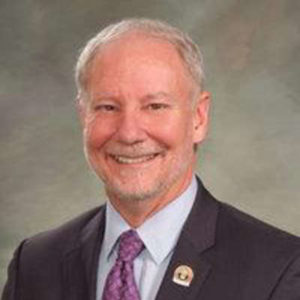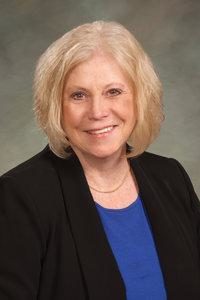
An Interview with Catherine Strode
AdvocacyDenver Board Member and Self-Advocate Mitch McKinney was one of over 400 individuals to protest the proposed cuts to Medicaid in the GOP health bill in a rally held in front of Senator Cory Gardner’s downtown office. Several Colorado legislators also participated in the Medicaid Protest Rally, including State Representative Dave Young. Representative Young spoke at the rally calling the proposed cuts to Medicaid a ‘civil rights issue.’

In an interview with Catherine Strode, Representative Young who serves on the Joint Budget Committee said Colorado would not be able to accommodate the cost shift from federal to state funding.
[Read more…] about Self-Advocates Join Medicaid Protest Rally
State Taps Marijuana Dollars to Attack Opioid Epidemic

An Interview with Catherine Strode
State Senator Cheri Jahn and the other sponsors of Senate Bill 17-193 have accomplished getting money from the state during an extremely tight budget year. In a unanimous vote, the senate has appropriated $1 million in marijuana taxes to establish a research center with the University of Colorado Anschutz Center for the prevention and treatment of substance use disorders.
Colorado’s mortality rate in drug overdoses has increased by 500 per cent over the past three years. In an interview with Catherine Strode, State Senator Cheri Jahn says the state’s drug epidemic is ‘out of control’ and credits her Republican colleagues for the bill’s passage.
[Read more…] about State Taps Marijuana Dollars to Attack Opioid Epidemic
The Colorado Health Foundation Makes Health ‘Everyone’s Business’

An Interview with Catherine Strode
Karen McNeil-Miller, President and CEO of The Colorado Health Foundation, readily admits to three “guilty pleasures”: french fries, wine, and her shoe collection. In fact, she invited all of the more than 500 attendees of the 2016 annual Health Symposium to openly call out their own personal ‘guilty pleasures.’ That public invitation is symbolic of the movement she is leading to make everyone consider their health decisions in connection with community, in the spirit of making health everybody’s business. In an interview with Catherine Strode, Karen McNeil-Miller discussed the Foundation’s ‘movement’ and how it is reshaping Colorado’s health care landscape.
[Read more…] about The Colorado Health Foundation Makes Health ‘Everyone’s Business’
2013 Colorado Legislative Committee Schedule
Follow the link below for a PDF of the 2013 House Committee schedule:
Follow the link below for a PDF of the 2013 Senate Committee schedule:
2012 Voter Guide on Disability Issues
Follow the link below to access the 2012 Voter Guide which outlines issues ranging from Medicaid, to juvenile justice, to pending federal legislation that all affect the community of individuals with intellectual and/or developmental disabilities. Use the guide to contact candidates for both Colorado legislature and U.S. Congress to raise awareness about these issues.
2012 AdvocacyDenver Voter Guide
Don’t forget to vote on Election Day on November 6th, 2012! Our voices count!
The Arc Reacts to the U.S. Supreme Court’s Decision on the Affordable Care Act
People with intellectual and developmental disabilities have been waiting for generations for the insurance reforms put in place by the Affordable Care Act. Today’s ruling removes any doubts that the law Congress enacted should stand and will benefit millions of people with and without disabilities. It ends discriminatory insurance practices and makes health coverage more affordable and accessible – important protections which too many people with disabilities have been deprived of for too long. Go to our blog for the top reasons why The Arc supports the law.
But the ruling is not perfect for people with I/DD. The Arc is concerned that disallowing the federal government the ability to withhold Medicaid dollars from states that don’t expand their program to cover more of the uninsured might mean that people with I/DD who would have benefitted from the expansion could be left behind. Medicaid is an incredibly important lifeline for people with I/DD, providing health care and long term services and supports.
We will carefully watch how states react to this development and encourage our advocates across the country to put pressure on their state leaders to do the right thing and expand their Medicaid program.
-Marty Ford, Director of Public Policy for The Arc
Bill Strengthens State’s Medicaid Fraud Prosecution

Senate Bill 60, sponsored by State Senator Ellen Roberts, and passed with nearly unanimous bipartisan support, will put some teeth into the prosecution of Medicaid fraud across the state. Currently, the Attorney General’s office prosecutes provider fraud. But recipient fraud is handled through the counties, who often lack the personnel to conduct the investigative process.
In an interview with Catherine Strode, Coordinator of the Health Care Advocacy Program, State Senator Roberts said the bill’s main intent is to create a stronger system of tracking Medicaid fraud carried out by both health care providers and benefit recipients.
Why is this bill good for the state of Colorado?
“Because it will give us good information. Currently we don’t have any streamlined system to inform the legislature as to how much it’s occurring, who’s doing it, provider versus recipient. I think we have people out there saying one thing or another as if there’s strong data to back up their claims. When I went after getting that strong data, I couldn’t locate it.”
How will it be implemented?
“Medicaid fraud is handled in two different ways in Colorado. Grantee or recipient fraud is handled through the counties. The Departments of Human Services at the county level, when they see something that they’re concerned about, are to investigate it. If it rises to the level of abuse, then they are to turn it over to District Attorneys to prosecute the case. If it’s provider fraud, a physician or a hospital, then the Attorney General’s office is supposed to investigate and prosecute. So we have a split system which is why we don’t know at the State Legislature who’s doing what. How much Medicaid fraud is occurring? What’s being pursued? What I have heard from folks is there’s wild speculation both in terms of who’s doing it, how much money is involved, and how many people who actually deserve Medicaid benefits are being deprived because money is being filtered off the system by those who aren’t entitled to it.”
Are there statistics on Medicaid fraud in Colorado?
“No. That’s the point. There are some people who say it’s rampant. And yet last fall when I was trying to get a handle on this, nobody could give me accurate numbers. HCPF has data for what they cover but it’s not the state agency’s responsibility to pursue it on the recipient side. The Attorney General’s office has a Medicaid fraud control unit which has several million dollars a year that they recover. But that is only providers, not recipient fraud. What happens at the county level, because often the dollars involved are much smaller, there’s not really a strong pursuit of going after Medicaid fraud because it takes more time and personnel than they think they will actually recover. The way the statute currently reads is that even if a county were to recover Medicaid fraud proceeds, they have to turn it over to the state (the state being Health Care Policy and Financing) so there’s no incentive for the counties to really pursue it because they have to help pay for the District Attorney to actually prosecute. If they recover any money, they don’t even get the cost of prosecution.”
What is the effect you want the implementation of this bill to have?
“With the huge increase in Medicaid eligibility, the system is going to be overwhelmed for awhile, as we have more and more people enrolled both because we at the legislature expanded eligibility but also depending on what’s happening at the federal level. So I just want to make sure that those entitled to receive Medicaid benefits actually get them. That we don’t have a siphoning off of state money to people who aren’t entitled, or are abusing the system, whether they be providers or recipients of the benefits. There’s so much money at stake in Colorado’s Medicaid budget. That’s why I think we need to get to the bottom of this.”
Report Debunks High Salaries For Insurance Execs

JBC Member Supports Reinstating Funds For DD Individuals

Letters are going out this week to 249 individuals with developmental disabilities from the State Department of Human Services telling them how to pick up their checks for extra funds. The extra dollars were restored to eligible individuals with developmental disabilities by a new state law sponsored by State Senator Mary Hodge and signed into law by Governor Hickenlooper this past week. House Bill 1177 restores the Home Grant Allowance in amounts ranging from $200 to $475 per month to individuals with developmental disabilities who are eligible to receive them.
Senator Mary Hodge explained to Catherine Strode, Health Care Advocacy Program and Outreach Coordinator, why House Bill 1177 was needed.
Senator Hodge, what is the intent of HB 1177?
“House Bill 1177 was a Joint Budget Committee Bill. The families who are affected brought Representative Dickey Lee Hullinghorst and Representative Dave Young here to speak to the Joint Budget Committee. It’s to remedy an unintended consequence of House Bill 10-1146 which didn’t mean to leave about 240 some people without help. They needed their home care, they made a choice, and either this passes or they have to go into nursing homes because it just cannot be taken care of. That was the intent.”
What was the issue?
“The families of the affected clients were formerly in the Home Care Allowance Program. They were forced to choose between two programs. One of them was the Supported Living Services; the other was the Children’s Extensive Services and they were near maxed out on their benefits which meant they didn’t have any way of paying to have people help take care of them or provide for some of their living expenses. It is a very small group of people but a very necessary item in their lives. Without the home health care would they would have to go to nursing homes. They were that close to the end of their waiver and they had no money to pay for those services.”
What does this Bill offer them and who is eligible for the support it provides?
“It’s a grant program for those people who are receiving services through either the Children’s Extensive Support Services or Supported Living Services, Home and Community Based Waivers, to receive home care allowance. It allows them to get the Home Care Allowance which will keep them out of nursing homes. It’s about 250 families. They are people who are near their max in services in the other program.”
How does the financial background of HB 1177 work?
“We have already appropriated money out of our general fund, which is sales and income taxes that people pay to the State of Colorado. The Home Care Allowance – we’re just going to take some of that already appropriated money and put it into the grant fund for these people who need this help. Putting these people into nursing homes is far more expensive than keeping them in their own homes, with their own families, with their own caregivers. This is a general funded program and it will come out of the existing home care allowance appropriations. So it’s part of what we already have. We just send it in a new direction. It covers things like buying your toothpaste, paying your rent, or whatever you needed to stay in your home.”
How long is this funding available for?
“This bill will expire in July of 2017.”
Legislator With Commitment to DD Services Asked to Carry Transfer Bill

Representative Bob Gardner, from Colorado Springs, has been asked to sponsor a bill that would transfer services for the developmentally disabled from the state’s Department of Human Services to Health Care Financing and Policy. Throughout his legislative career, Representative Gardner has advocated for funding to provide services and programs for the developmentally disabled.
In an interview with Catherine Strode, Health Care Advocacy Program and Outreach Coordinator, Representative Gardner explained why he has been asked to carry the HCPF transfer bill and why his personal commitment to the issues of the developmentally disabled has been the most rewarding experience of his service in public office.
Why is the transfer of services being proposed?
“A lot of people have told me that the move of DD division to HCPF needs to happen. A lot of the question is about the details and what the plan is. The way it’s been simply described to me, for those people who have reservations right now, is that we need to hammer out the details before we pass a bill. Others have said, ‘no this needs to be done and we need to get it done this year.’ So I think what’s interesting about it right now is an acknowledgement by most of the stakeholders that I’ve talked to that DDD needs to move to HCPF because of the connection with Medicaid. I think whether it happens this year or next year, I think that it is going to happen and even though a bill has not been introduced, I think we’re already in the phase of discussing details and I have to confess that at his point I don’t know that I can talk a lot about those little details. I’ve just gotten a draft of the bill and I’m going to look at it. I’ve had some people say to me that I absolutely am the right person and I need to be on board. I’ve had other people say to me that it is something we should proceed with very carefully.”
Why are you the right legislator to potentially sponsor this bill?
“I’m being asked to sponsor it because of my history of commitment and because I have credibility on the issue. I have credibility in my caucus, and I can understand the governmental and regulatory issues because there a lot of them. All of these issues with the developmentally disabled community raise issues about conflicts of interest, providing services, who oversees whom, are we doing it right, are we imposing too many safeguards so it increases the cost. The best of everything about the operation of government and what can be done well – and what can be done wrong – come together in the providing of DD services. People with developmental disabilities have incredible needs, their families have incredible challenges and ironically the politics in public policies surrounding providing the services are phenomenally complex. So it’s hard when their advocates and their families encounter the whole system.”
How is it that you have this strong commitment to the DD issues?
“A lot of people may have a family member with developmental disabilities, I don’t. The issue sort of found me. In my first session in the legislature, I was asked by the minority leader to serve on the Interim Committee on long term care services. I was a little puzzled as to why I was asked at the time. It turned out it was a very good reason. I actually had worked as a campaign consultant in El Paso County on a referred measure to try to get an additional one cent sales tax for DD services. That was unsuccessful. But I worked on the campaign and the people who were in the community at the time when the long term care and waiting list Interim Committee was pulled together said, well Rep Gardner knows something about the issues – we’ll ask him – the education of that member will not be as great. “
Did it grow from that?
“It did grow from that. And we can make a difference. This is an issue that doesn’t have partisans. This is the number one issue which I personally work with legislators who agree with me on absolutely nothing else. Funding for people with developmental disabilities, and programs for people with developmental disabilities and their families, and providing the services, is something that is the proper role of government. It is proper for us to struggle to find the funding, to do what we can. It is an issue that I have found personally rewarding. “
How has it been rewarding?
“I did a bill that came out of the Interim Committee to set aside contracts to provide jobs for people with developmental disabilities and what’s been so rewarding for me about that is to literally have people who have real jobs because of that bill and their families to walk up to me somewhere and say, ‘ I have a job. You’ve made a difference in my life.’ You know we do an awful lot of stuff in this building and you have to walk away and say, did it matter to anybody? This is an issue where when you do something and you do it in a way that works, people walk up to you and go ‘you made a difference in my life – my life is better because of something you did.’ That’s hard to find in the world today.”